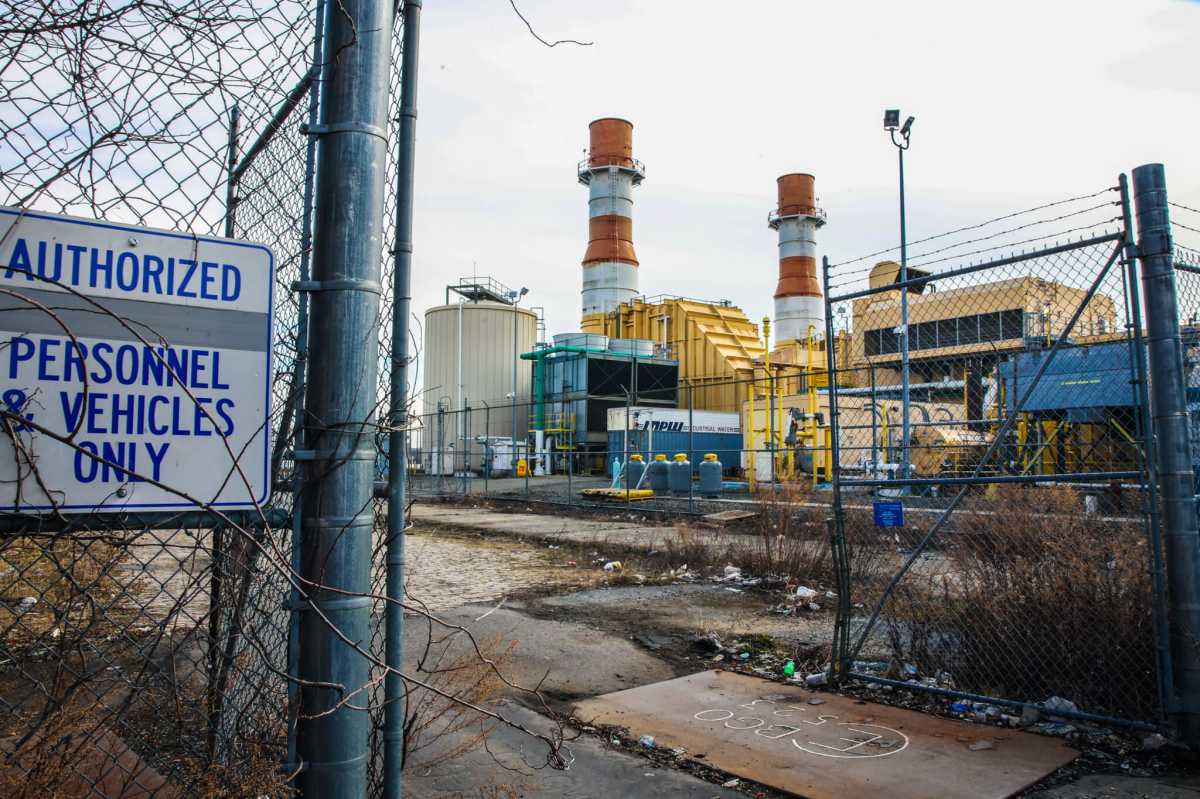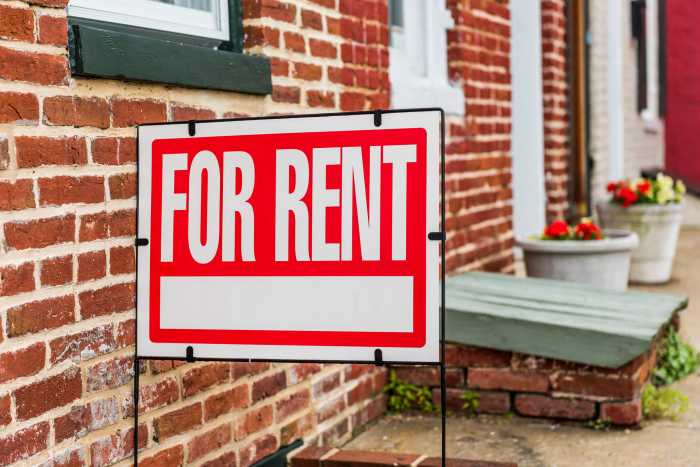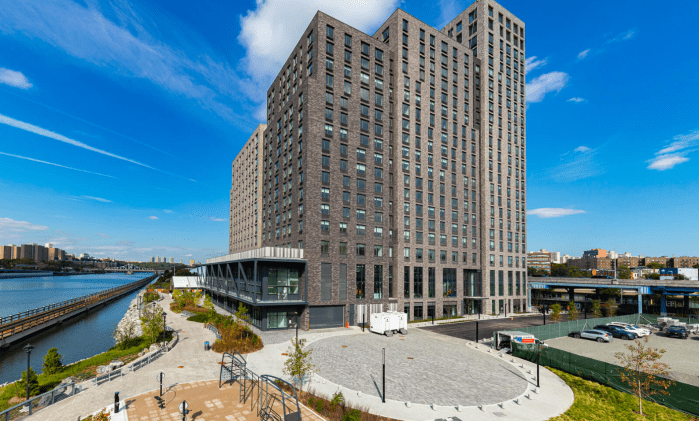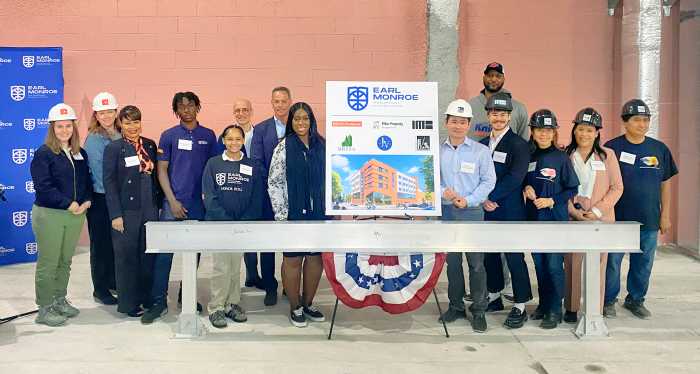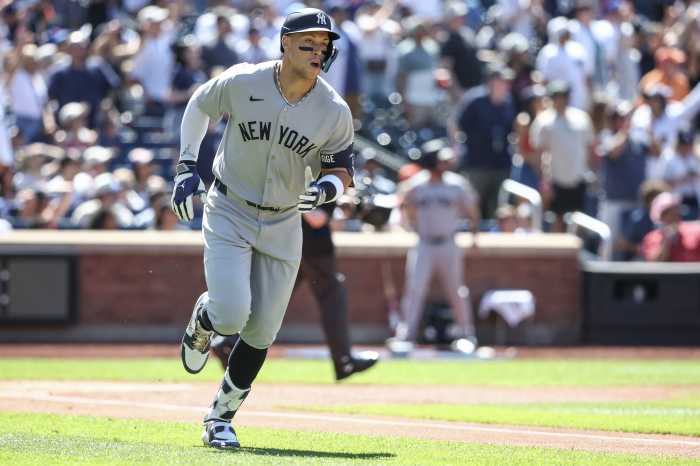South Bronx residents and activists spoke up in two virtual hearings this week to oppose the New York Power Authority’s (NYPA) potential renewal of two permits that would keep the Harlem River Yards “peaker plant” operational for another five years.
More than 60 people tuned in to the Monday hearings — as part of a public comment period that closed on Wednesday –concerning the gas-powered plant, located at East 132nd Street and the Robert R. Kennedy Bridge. It is owned and operated by NYPA and the state’s Department of Environmental Conservation.
Under ambitious new climate legislation, New York state pledged to convert 70% of its gas-powered plants to clean power by 2030 and develop a zero-emissions electrical system by 2040.
But for South Bronx residents and environmental activists, the fight to close gas-powered plants such as Harlem River Yards has been ongoing for decades and change is happening too slowly.
“I, like many longtime community members here in the South Bronx, fear that we do not have seven years [until 2030] to spare,” said Mott Haven resident Sonji Lopez.
A specific timeline for the decision was not addressed at Monday’s hearings. The state Department of Environmental Conservation also did not provide details to the Bronx Times but said the agency will begin reviewing the public comments.
Competing demands
For this renewal, NYPA is looking to continue operating the Harlem River Yards plant as is. According to the notice of public hearing, “No new emission sources or modifications to existing emission units are proposed as part of this permit renewal. With this renewal, the Facility will not increase emissions and no change to the facility’s emissions cap is proposed.”
South Bronxites have long worried about poor air quality not only from peaker plants but also traffic congestion and industrial activity.
The city published data in 2022 showing that Mott Haven/Port Morris are among the 10 worst neighborhoods for air quality. In New York City, research found that while wealthy areas of midtown and Lower Manhattan experience the worst pollution, low-income neighborhoods like the South Bronx experience many more respiratory hospitalizations, more than 26 per 100,000 residents in the timeframe studied.
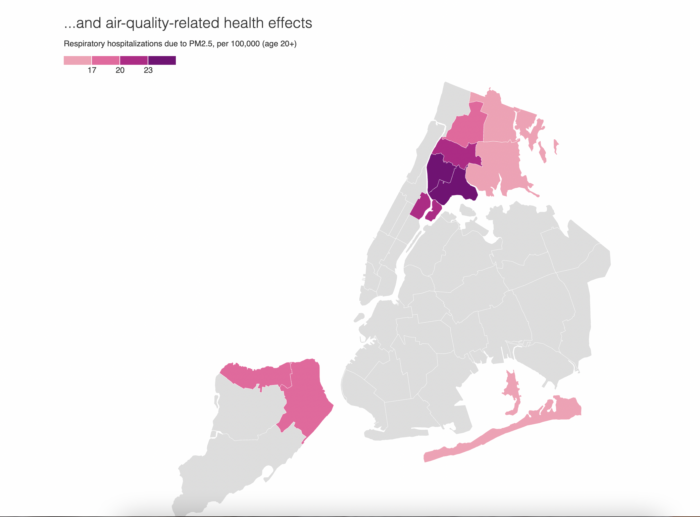
Due to these longstanding problems, those opposed to the permit renewal said the status quo isn’t good enough. In written talking points ahead of the hearing, local nonprofit South Bronx Unite stated, “The NYS Department of Environmental Conservation (DEC) should not issue a renewal permit without requiring the plant to reduce its emissions going forward.”
At the hearing, Mychal Johnson of South Bronx Unite said that he has been advocating to close the plants since 2006. They were built as a temporary fix under former Gov. George Pataki, yet they remain decades later, he said.
In addition, Sahana Rao, attorney with the New York branch of the nonprofit National Resources Defense Council, called at the hearing for “a more detailed investigation of the environmental burdens that renewing this permit would impose on the surrounding community.”
And residents say the energy plants are operating almost continually — not just at times of peak demand. According to research by the Bronx Environmental Council, the Harlem River Yards plant operated 211 days in 2022, up from 131 days in 2018.
“They’re no longer peaker plants,” Johnson said in reference to the increase.
In a statement to the Bronx Times, NYPA officials said that the plants run in accordance with demand, which they said is increasing.
Energy equity
Saul Rojas, NYPA’s regional manager and senior vice president of operations for southeast New York, who presented at the public hearing, stated that running the Harlem River Yards plant prevents the need for worse-polluting plants to operate.
The agency minimized the impact of peaker plants compared to other options. One of the presentation slides read, “The impact of emissions from NYPA’s small natural gas power plants, like Harlem River Yards and Hellgate is … less than EPA standards.”
The statement from NYPA officials added, “Maximum concentrations from stack emissions are below significant impact levels” and that the plant is equipped to remove “more than 90% of hazardous air pollutants.”
But Lopez, the Mott Haven resident, argued that normal standards may not apply because of the multiple burdens already impacting the South Bronx, such as overall poor public health and low median income, which, according to 2021 data, is $32,010 — slightly less than half the citywide median.
All these issues, residents said, come down to environmental justice. Some testified that the permit decision most directly affects low-income people of color — which they see as no coincidence.
“These plants are not being put in affluent communities where non-people of color live,” said Dr. Melissa Barber, a physician who also represented South Bronx Unite. “Every single person who has given leeway for these permits to exist probably doesn’t live in this community, probably doesn’t breathe this air.”
Reach Emily Swanson at emily.swanson63@journalism.cuny.edu. For more coverage, follow us on Twitter, Facebook and Instagram @bronxtimes

